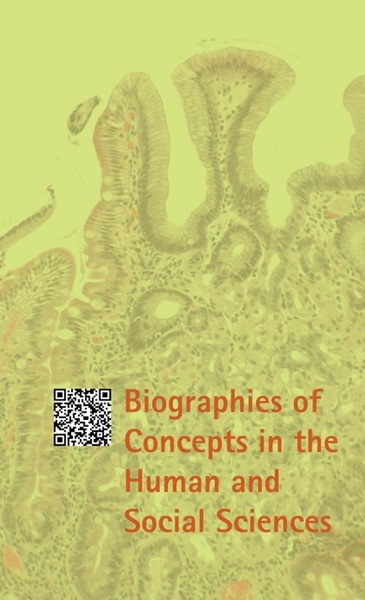
Biographies of Concepts in the Human and Social Sciences
This two-day symposium brings together international scholars to explore the history of concepts in the humanities and social sciences. The focus is on the emergence, migration, dissemination, and disappearance of concepts, ultimately aiming at a theory of what might be called the “death” and “afterlife” of concepts. Ever since the seminal work of Gaston Bachelard and Georges Canguilhem, the history of concepts has played an important role for a critical history of rationality and history of science at large. Path-breaking studies on concepts like probability and objectivity have not only refined the methodological framework within historical epistemology but shown the importance of such an approach. The focus on the relation between language and intellectual practices has been accompanied by a novel understanding of knowledge-production in the respective fields. We will discuss the potential of this approach for the history of the human and social sciences.
This event is free and open to the public however please register by sending an email to wimmer@berkeley.edu to gain access to the pre-circulated papers.
Co-sponsored by the Austria-Berkeley fund of the Marshall Plan Foundation, the Doreen B. Townsend Center for the Humanities, the Center for Science, Technology, Medicine and Society, and the Departments of Anthropology and Rhetoric.
PROGRAM
THURSDAY, MARCH 19
9:00 am - 9:30 am
Mario Wimmer (Berkeley), "Writing histories of concepts"
9:30 am -10:30 am
Hélène Mialet (Davis), "The History and Limits of the Actor-Network Concept"
Respondent: Mario Biagioli
11:00 am -12:00 pm
Benjamin Wurgaft (Cambridge, MA), "A Meditation on Canguilhem’s Concept of the Cell: Vitality in and out of Cartesian Vats
"
Respondent: Jonathan Sheehan
12:00 pm - 1:00 pm
Lunch
1:00 pm - 2:00 pm
Galina Durinova (Moscow), “Obshestvo: birth, life and death of Russian concept of society
"
Respondent: Alexei Yurchak
2:00 pm - 3:00 pm
Niklas Olsen (Copenhagen), "The Concept of the Consumer in Neoliberal Political Thought
"
Respondent: Christian Geulen
3:00 pm - 3:30 pm
Break
Please note: the venue changes in the afternoon to the CSTMS library, 460 Stephens Hall
3:30 pm - 4:30 pm
Harm Kaal/Wim de Jong (Nijmwegen/Amsterdam), "Conceptions of Class. The Interaction Between Scientific and Political Languages of Class in the Netherlands, c. 1930s-1980s"
Respondent: Mario Wimmer
4:30 pm - 5:30 pm
Marie Burks (Cambridge, MA), "Thinking Through “Conflict”: Defining a Social Scientific Concept in Cold War America
"
Respondent: David Bates
6:00 pm - 7:30 pm
Lecture: Paul Rabinow (Berkeley), What is a Case?: Concepts and Practices
Introduction by Mario Wimmer
-------------
Friday, March 20
9:00 am - 10:00 am
Eric Schatzberg (Wisconsin), "From Technologie to Technology: Death and Rebirth of a Keyword
"
Respondent: Cathryn Carson
10:00 am - 11:00 am
Carl Marklund (Södertörn), "The Ghost of the Engineer: Birth, Death and Strange Afterlife of “Social Engineering” in Western Political and Social Theory"
Respondent: Christian Fleck
11:00 am - 11:30 am
Break
11:30 am - 12:30 pm
Neus Rotger (Barcelona), "Historicizing Romance"
Respondent: Anthony J. Cascardi
12:30 pm - 1:30 pm
Lunch
1:30 pm - 2:30 pm
Lisa Reade (Berkeley), "Metaphor as Orientation: Kant, Blumenberg, Ricoeur"
Respondent: A. Aloisia Moser
2:30 pm - 3:30 pm
Henning Trüper (Berlin/Paris), "Future Philology and Behind Philology: Ruminations on a Nineteenth-Century German Concept"
Respondent: Niklaus Largier
3:30 pm - 4:00 pm
Break
4:00 pm - 5:00 pm
Simon Taylor (Chicago), "From Kierkegaard to Klonopin, or, Toward a Conceptual History of Anxiety
"
Respondent: Thomas Laqueur
5:15 pm - 6:00 pm
Final discussion